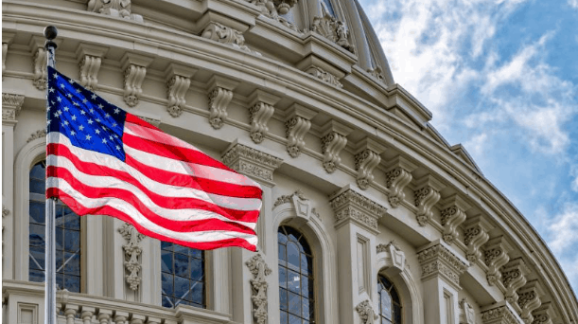The federal government’s shift toward controlling small business

Recent proclamations by the Biden administration have revealed a worrying shift in the federal government’s attitude toward America’s small businesses. In a new column at Forbes, I cover a mounting tendency to exploit government funding to steer small business endeavors in pursuit of regulatory aims. Unchecked, this paternalistic stance threatens the autonomy, self-sufficiency, and independence that ought to define entrepreneurship.
Meanwhile, a disregard for regulatory burdens faced by small businesses is evident, a topic addressed in a May 22 House Committee on Small Business hearing entitled “Burdensome Regulations: Examining the Biden Administration’s Failure to Consider Small Businesses.”
During April’s Small Business Week, Joe Biden issued a proclamation praising small businesses as the engine of the economy. While this voiced sentiment is unobjectionable, Biden also spoke of “investments” that in the current political context entail large-scale infrastructure, climate, and equity projects—wealth transfers that are aimed at reshaping the social contract.
We have covered extensively the post-COVID fusion of spending and regulation, and of big business with big government. Taxpayer financed or indemnified national investments—driven by Biden and rooted in works like Mission Economy:A Moonshot Guide to Changing Capitalism by Mariana Mazzucato—are focused on large-scale projects and subsidies. These do change capitalism—by replacing it with public-private partnerships and state economic planning that Biden perversely refers to as “bottom up, middle out.”
The problem now is that, increasingly, small businesses are being swept into this big-government vortex.
A Fact Sheet accompanying Biden’s Small Business Week proclamation highlighted record procurement dollars for small businesses, boasting of $179 billion in federal contracts for 2023, with significant portions earmarked for disadvantaged and veteran-owned businesses. While the Small Business Administration (SBA) has long supported small businesses through loans and contracts, today’s approach pulls them into a government-dependent orbit.
Biden’s SBA is fostering small business over-reliance on government contracts instead of reducing regulations and prioritizing independent entrepreneurship responsive to consumers and basic supply and demand. Indeed some of the administration’s bold language about leveraging federal power “as both a lender and customer” to achieve regulatory aims in climate, energy and more would trigger antitrust scrutiny if uttered by private firms.
The administration’s approach creates artificial markets, exemplified by Biden’s claim that the Inflation Reduction Act creates new markets for small clean-energy companies. These markets wouldn’t exist without state support. Vice President Kamala Harris’s recent announcements of funding for auto parts makers to navigate the EV transition further illustrate this point. Despite massive investments, progress has been unimpressive, with only seven EV charging stations established after $7 billion in outlays.
A congressional investigation is needed to comprehend and reverse the non-market economic transformations underway. It is crucial to identify how many federally funded small businesses provide goods and services actually in demand by consumers, versus those created and propped up by government grants.
The administration’s emphasis on social equity through small business policy adds to the economic concerns. The SBA is now a tool for advancing a DEI agenda, complicating future policy reversals given that such offices are being sprinkled throughout the federal government to be protected by civil service laws. Combined with top-down investment, these equity-driven initiatives—such as the modernization of the Small Business Investment Company Program—are reshaping the landscape.
The contribution of such interventions seems to have contributed to concerns over potential inappropriate electioneering and voter registration activities at SBA, inducing the aforementioned House Committee on Small Business to schedule a June 4 hearing entitled “Weaponizing Federal Resources: Exposing the SBA’s Voter Registration Efforts.”
This increased federal intrusion into small business and possibly even electioneering to safeguard such moves is unfortunate. The House Small Business Committee’s time could be far more productively spent following up on its inquiries into disproportionate regulatory burdens faced by small businesses, and on agencies failure to comply with safeguards like the Regulatory Flexibility Act meant to ease overlapping and burdensome small business regulations. Such concerns are mounting in importance: As the chart below shows, rules finalized in the Federal Register that affect small business appear to be on the upswing.

Congress needs to address the Biden administration’s small business policies that prioritize their dependence upon government over entrepreneurial independence, and the propriety of effectively creating artificial businesses to leverage progressive economic and social regulatory objectives.
A better agenda would focus on eliminating the use of small business as a policy tool and on broad regulatory liberalization for the genuine entrepreneurs among them. Small business deserves small government. It deserves an environment wherein entrepreneurship can thrive without excessive regulatory and financial manipulation for non-business ends.